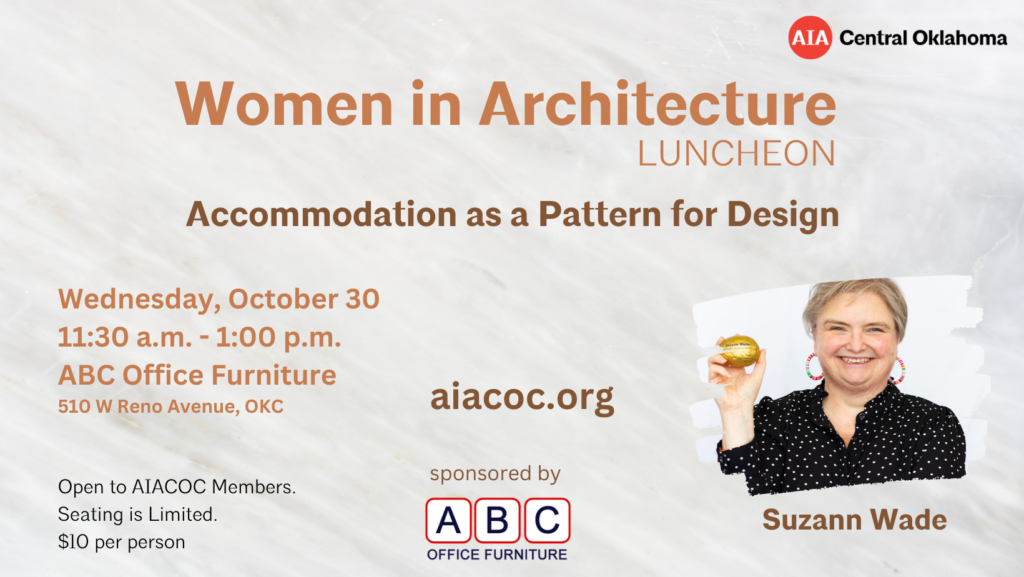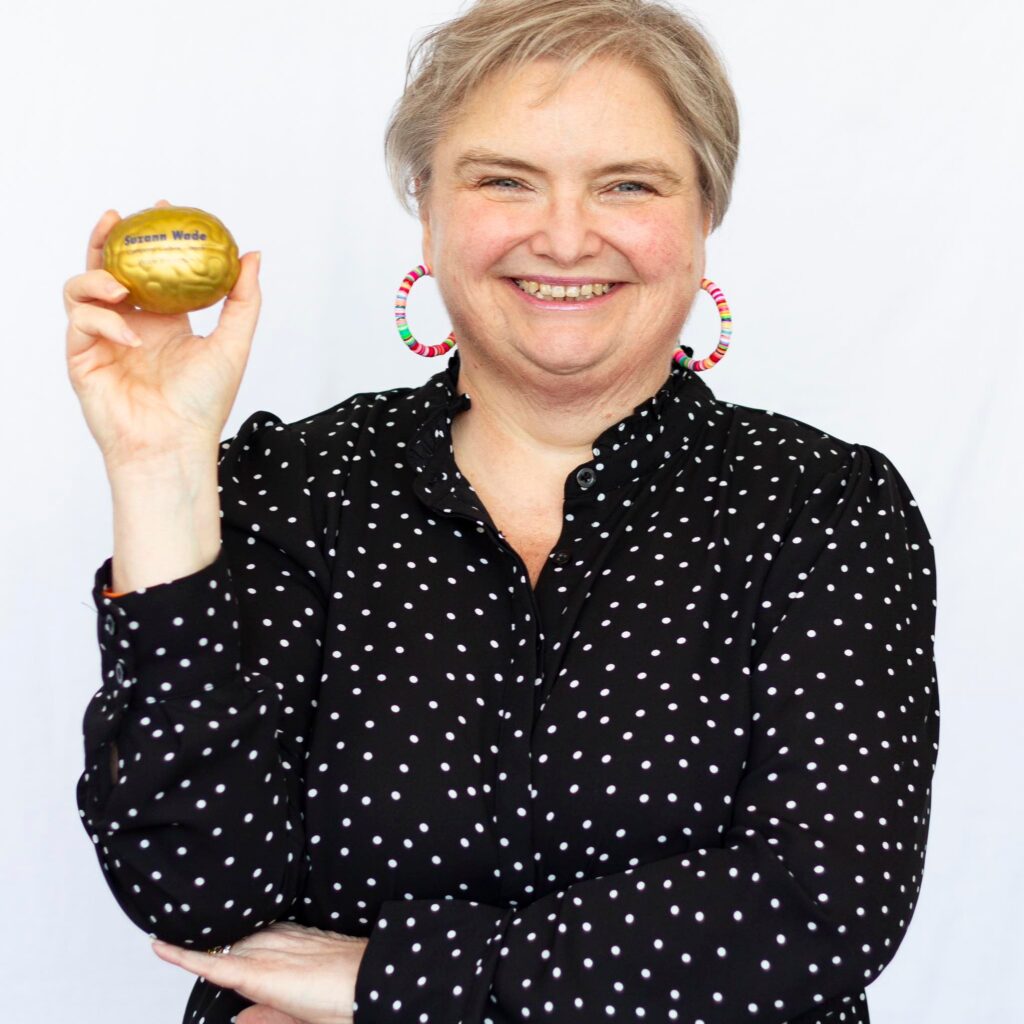
At the age of 27 years old, accommodating her changing health became a theme of Suzann’s life. In the matter of just a few hours, Suzann lost all of her central vision due to a neurological condition. Thus began an 18 month journey that eventually led to the diagnosis of Stage 3 brain cancer. Went she went into surgery on September 22, 2000, she was one woman and when she woke up 8 hours later, she was a completely different person altogether.
Through ensuing treatments and recovery and raising a family, Suzann has had to navigate a neurotypical world with a neurodiverse brain, frequently reinventing her career through a whirlwind of discovering how to accommodate her ever changing needs. Along her path, Suzann had to fight as her own advocate at many points along the way. As a result, three major justice issues emerged: greater patient advocacy, greater accommodations for invisible disabilities, and the need to empower and celebrate every brain.
“Accommodation as a Pattern for Design” is the story of how accommodations have shaped every part of Suzann’s life from her home to her company, to her family life and even how she lives each day. Suzann’s story is particularly relevant to architects as it illustrates the importance of making every space and setting as accommodating as possible to as many people as possible every chance we can.
This luncheon will take place on Wednesday, October 30th at 11:30 a.m. and hosted by our sponsor, ABC Office Furniture at 510 W. Reno Avenue in Oklahoma City. Due to limited seating, this program is open to AIA Central Oklahoma members only. The cost to attend is $10. No refunds. Register below.
Suzann Wade

Suzann Wade is the owner of Wade Innovation. She is a master creative problem solver and facilitator. As an Innovation Coach, she empowers individual business owners & teams to achieve breakthrough thinking. Whether in her coaching or her speaking, she can steer any group towards greater positivity and connection.
As a brain cancer survivor of 24 years, she empowers others to recognize their own strengths. She is an advocate for the value of every brain and for greater accommodations for people with invisible disabilities.
